
Lamar, Colorado
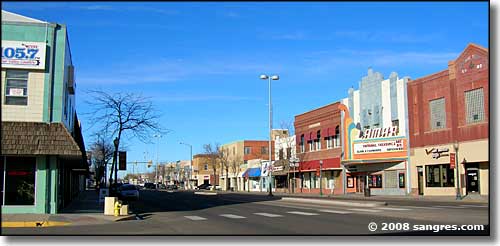
Downtown Lamar in early 2008
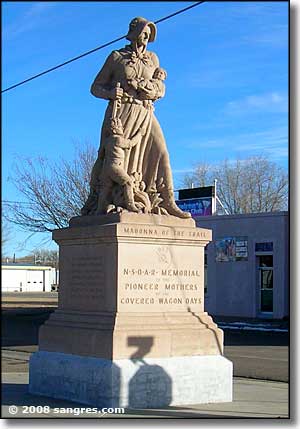
Lamar was one of the liveliest way stations on the Santa Fe Trail for a long time. After abandoning Bent's Fort (between Las Animas and La Junta), William Bent built his second trading post several miles west of here in 1853. This was the area of "Big Timbers," a thick belt of giant cottonwoods that extended upriver almost 40 miles. This was paradise for the Indians, trappers and freighters, until the railroad began inexorably laying tracks up the Arkansas River in the mid 1870's.
The tracks brought soldiers, settlers and cattlemen, and between the railroad and the pioneers, the old ways of life were destroyed. The Indians were displaced, the game herds decimated and the Big Timbers were cut down and sliced up for building material. By 1900, the area had changed dramatically, and the forest and trade routes were gone.
As a town, Lamar was founded by speculators who reasoned they needed a federal land office and a railroad depot to ensure their venture's success. So they named the town "Lamar" after the sitting secretary of the interior (LQC Lamar) and he granted them the land office. The railroad depot they actually stole from a cattleman who lived 3 miles out of town. They had the rancher summoned to Pueblo and while he was gone, they hauled his railroad depot into their townsite. On May 24, 1886, lots went on sale and before the week was out, several saloons and real estate agencies had set up shop and were doing business. By December, 1886, stores, schools, a church and a newspaper were in operation and the town's population reached 1,000.
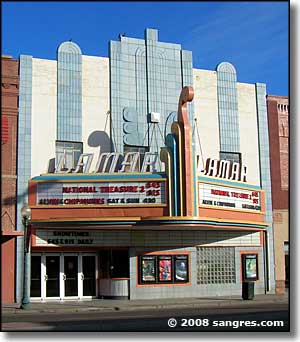
During World War II, Camp Amache was established just east of Lamar. This was a "relocation center" built to house Japanese-Americans. Opened in August 1942, the camp quickly became Colorado's 10th largest city, housing up to 7,500 people. Inside the fence, Amache was like any other city, except that the folks living inside the fence were virtual prisoners. Today, all that's left of Amache is the cemetery and several of the concrete building foundations. Some of the students at Lamar High School have taken on the project of preserving what's left of the site so that we don't forget what happened there.
23 miles south of Lamar is the Colorado Green Wind Farm, the 5th largest wind farm in America. The wind turbines used here are the largest built in North America: 328 feet from the ground to the tip of the highest blade. These monsters weigh 92 tons each and the blades rotate 11-20 times per minute. The wind farm stretches across 11,840 acres of leased farm land and produces more than 500 megawatt hours of power per year.
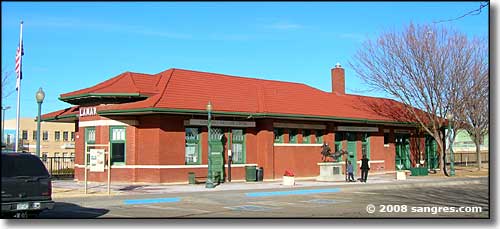
The Lamar Welcome Center
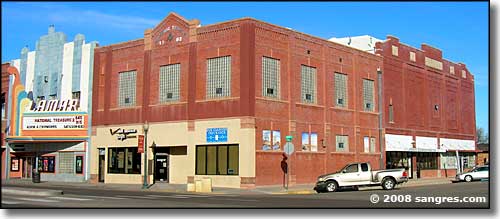
Some great constructions in downtown
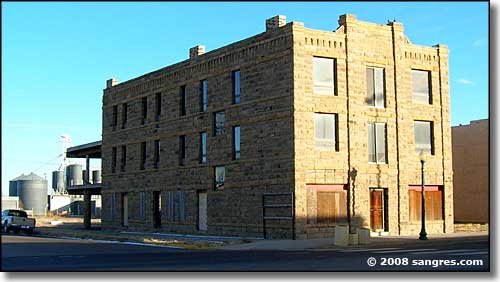
This sandstone block building is a bit more territorial in design
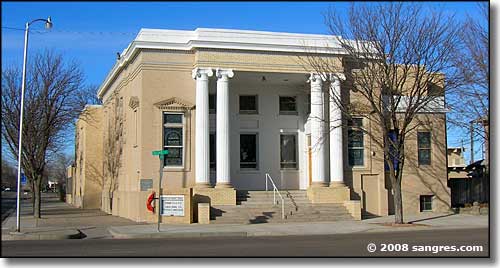
The United Methodist Church, classic design
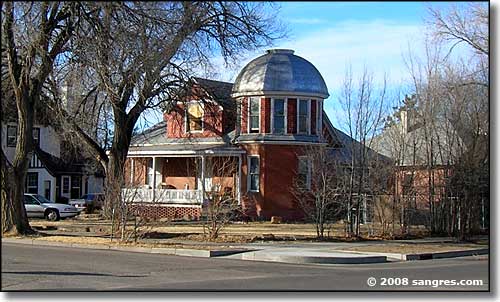
A Victorian I found 2 blocks from downtown
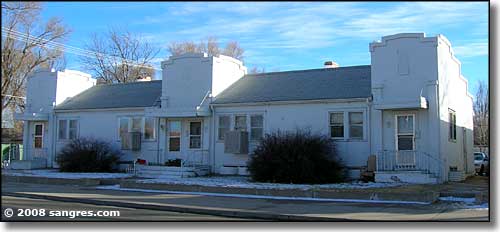
Territorial, 1 block from downtown
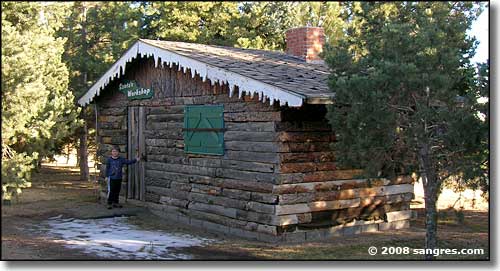
My grandson just had to check out Santa's Workshop, behind the Welcome Center
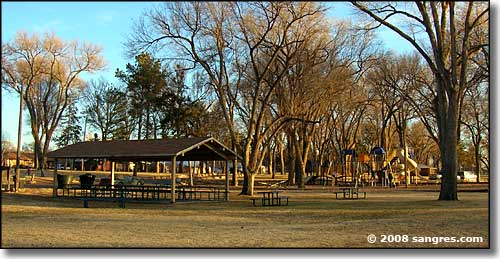
In Willow Creek Park, a WPA project from 1933
Latitude: 38.0833°N
Longitude: 102.6209°W
Incorporated: December 5, 1886
Elevation: 3,625'
Education:
High School or Higher: 70.0%
Bachelor's Degree or Higher: 11.1%
Graduate or Professional Degree: 4.2%
2011 Cost of Living Index for Lamar: 81.1
Estimated Median Household Income: $32,900
Estimated Median Home Value: $61,300
Median Resident Age: 31.1 Years
Major Industries:
Health Care, Transportation Equipment, Lodging & Food Services, Construction, Agriculture, Government, Educational Services, Finance & Insurance Services, Social Assistance
Unemployed (March 2011): 7.0%
Population Demographics: 2010
| Total Population | 7,804 |
| Males | 3,775 |
| Females | 4,029 |
| Population by Age | |
| Under 18 | 2,173 |
| 18 & over | 5,631 |
| 20-24 | 509 |
| 25-34 | 989 |
| 35-49 | 1,300 |
| 50-64 | 1,426 |
| 65 & over | 1,102 |
| Population by Ethnicity | |
| Hispanic or Latino | 3,100 |
| Non Hispanic or Latino | 4,704 |
| Population by Race | |
| White | 6,137 |
| African-American | 54 |
| Asian | 28 |
| Native American | 79 |
| Hawaiian or Pacific Islander | 1 |
| Other | 1,270 |
| Two or more | 235 |
Santa Fe Trail - State Trust Lands & Wildlife Areas
National Park Service Sites - BLM Sites - National Wilderness Areas - Unique Natural Features
Outdoor Sports & Recreation - Ski & Snowboard Areas - Photo Galleries - Colorado Mountains
